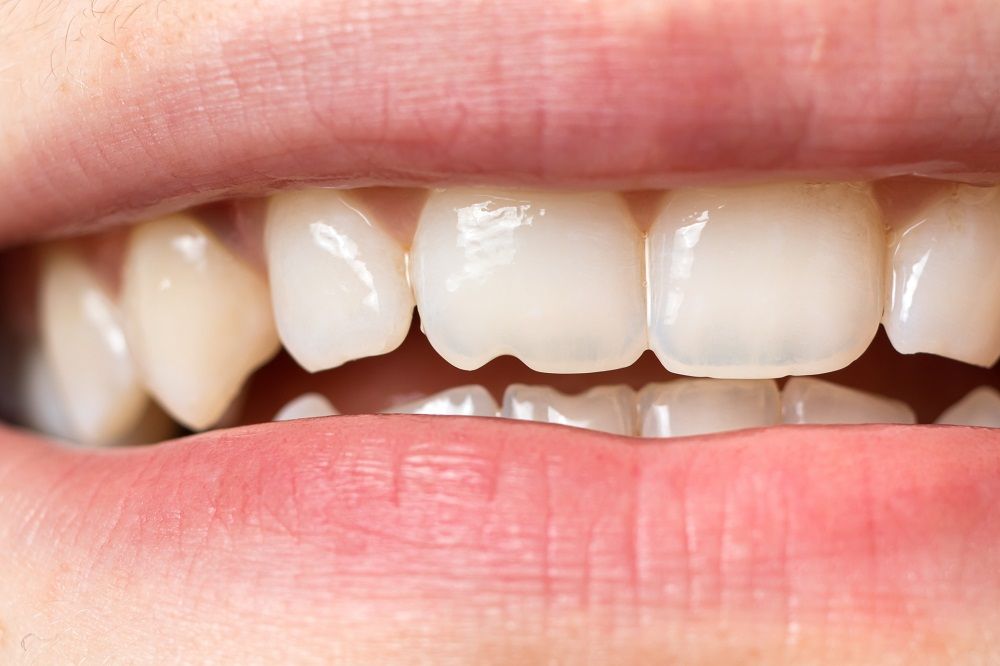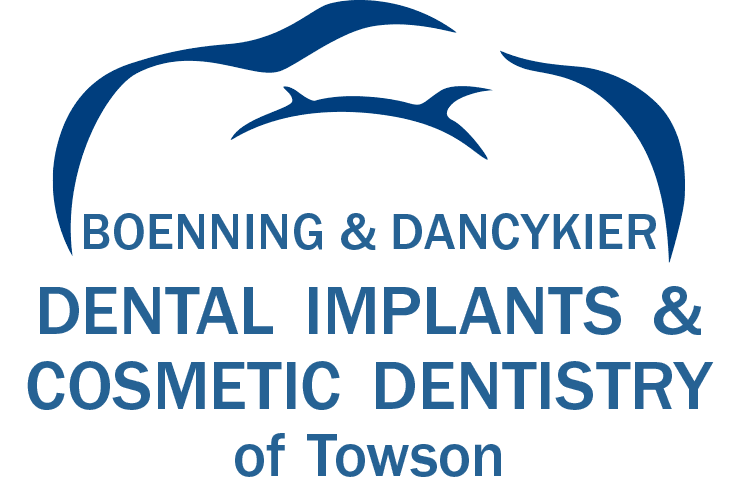Can you see right through your teeth, especially toward the edges? You might not be happy about the way your smile looks with this translucent effect. The issue will not go away on its own, so you should schedule a consultation with your dentist to resolve this problem.
Not only does this issue bring about cosmetic dental concerns, but it could also point to a larger dental problem in your smile. Read on to learn about what can cause this translucent look in the teeth and how it impacts your oral health.

Why Do My Teeth Appear Translucent?
If your teeth appear translucent toward their edges, this could be a sign of enamel loss. Enamel, the outer shell of the tooth, provides a protective layer that covers the vulnerable interior.
Though durable, enamel can wear down or erode over time, exposing the inner layers of the tooth. Weakened tooth enamel can look see-through where it has thinned. Once gone, enamel cannot regrow. Acidic foods and drinks, teeth grinding, and certain medical conditions can cause enamel erosion.
Genetics can also cause tooth translucency. Some people naturally have more transparent or thinner enamel. This can give you translucent grey teeth, and make the edges of your teeth translucent.
Excessive intake of fluoride can lead to a condition called fluorosis. Fluorosis can cause the enamel to look translucent and create white or brown spots. Fluorosis can also cause streaks on teeth, pitting or mottling enamel, and a chalky appearance of the teeth.
You might also feel tooth sensitivity when external stimulants reach the nerves in the inner layers of the tooth. Don’t fear the sensitivity because it’s only temporary and will go away quickly after treatment. You will need dental treatment to resolve this issue.
Certain medications, such as tetracycline antibiotics, can also cause enamel defects that result in transparent teeth. This can make the teeth more prone to decay and sensitivity as well. You should discuss any medications you are taking with your dentist to prevent enamel defects.
Enamel Hypoplasia
Enamel hypoplasia is a condition where the enamel doesn’t form properly during early childhood development. Teeth may have a pitted, grooved, or thin appearance. They are more prone to cavities, sensitivity, and easily stain.
Certain factors can cause enamel hypoplasia, including:
- A genetic condition
- Celiac disease
- Nutritional deficiencies
- Illness or fever during tooth development
- Exposure to chemicals or certain medications
Enamel hypoplasia can affect both baby teeth and permanent teeth. Fortunately dentists have many treatments for enamel hypoplasia. Treatment options may include fluoride treatments, dental crowns, fillings, sealants, or dental bonding to protect the affected teeth.
Can My Dentist Restore the Look of My Smile?
Your usual oral hygiene routine cannot restore the look and structure of your teeth after you suffer enamel erosion. Even with your dentist’s help, the enamel will not grow back. But they can give you a fluoride treatment to strengthen the remaining enamel.
The fluoride absorbs into tooth enamel to fortify the teeth, making them better able to resist decay and discoloration. The dentist may also suggest using mouthwash or toothpaste that contains fluoride for further protection at home.
However, this will not resolve existing cosmetic damage like translucent appearances in the teeth. For this issue, your dentist may recommend a teeth bonding treatment.
Bonding involves tooth-colored resin to give a whiter and more even look to your smile. The dentist hardens it after he sculpts it by hand so that it remains in place. Bonding may stain if you are not careful, so pay attention to the substances you consume to protect your tooth color.
How Can I Prevent Enamel Erosion?
Some patients might be more susceptible to enamel loss because of their genetics. In these cases, a dentist can develop a personalized preventative dental care strategy.
But you can lower your risk of enamel loss by avoiding substances that can hurt your teeth. Limit sugary or acidic food and beverages that eat away at your enamel and impact the look and feel of your teeth. Switch to chewing sugar-free gum and eat a healthy diet.
You should also practice good oral hygiene to remove plaque in a timely fashion before it can erode your tooth enamel. This means that you should brush your teeth twice each day and floss daily. Make sure you visit your dentist for routine teeth cleaning appointments too to maintain the best oral health.
